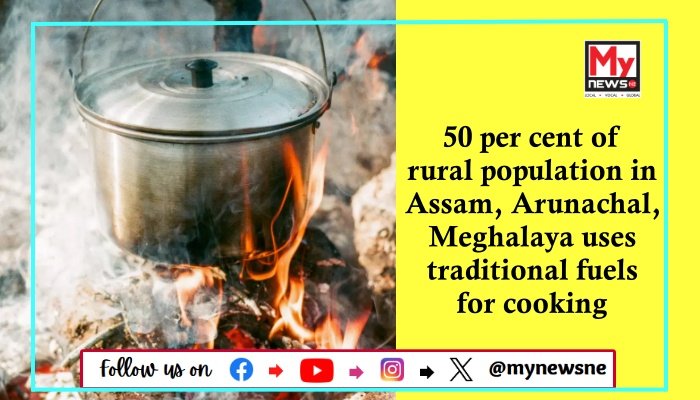Study by IIT Mandi Highlights Health Risks of Traditional Cooking Fuels in Northeast India
Guwahati, 19th February: A recent study conducted by the Indian Institute of Technology (IIT) Mandi, in collaboration with Institute National de Recherche et de Sécurité (INRS), France, and the National Physical Laboratory (CSIR-NPL), India, has shed light on the health hazards associated with the use of traditional solid fuels for cooking in northeastern states like Assam, Arunachal Pradesh, and Meghalaya.
The study, aimed at assessing the impact of biomass cooking fuel compared to LPG-based cooking, revealed that over 50 percent of the rural population in these states still relies on traditional solid fuels such as firewood and mixed biomass. This practice leads to the emission of significant pollutants into the kitchen air, posing health risks to households.
Assistant Professor Sayantan Sarkar from the School of Civil & Environmental Engineering at IIT Mandi explained, “Our study combines real-world aerosol measurements in rural kitchens with dosimetry modelling to robustly estimate the impact of cooking emissions on the respiratory tract.”
The research found that exposure to harmful aerosols in kitchens using firewood or mixed biomass was significantly higher compared to those using LPG, with respiratory deposition ranging from 29 to 79 percent of the total aerosol concentration. Additionally, the fraction of the population using traditional solid fuels faced significantly higher disease burdens compared to LPG users.
The study also measured the potential for oxidative stress resulting from exposure to indoor cooking emissions, estimating that biomass users face 4-5 times higher oxidative stress compared to LPG users. This stress is attributed to the inhalation of metals and organic chemicals produced during indoor cooking with biomass fuel.
In light of these findings, Sarkar emphasized the urgent need for rural communities in northeast India to transition to cleaner cooking methods. Recommendations include improving access to LPG, enhancing cookstove programs, raising awareness in rural areas, investing in local solutions, and organizing health camps for rural women.
The study underscores the importance of addressing the health risks associated with traditional cooking fuels and promoting cleaner alternatives to safeguard public health in rural communities across northeastern India.
Read More: Union Minister Anurag Thakur Reaffirms Commitment to Northeast Development

